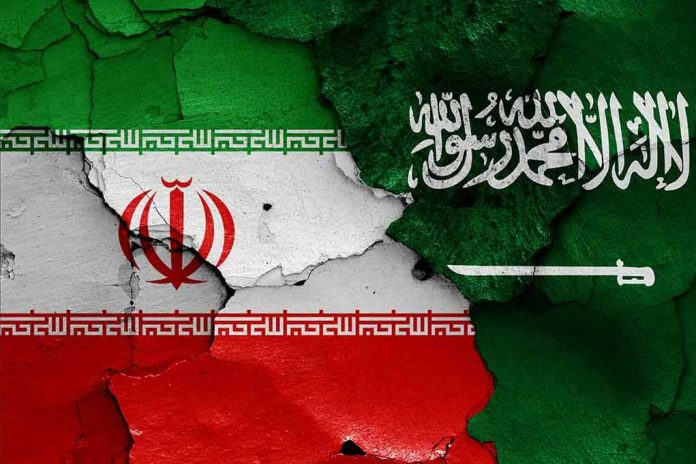
Iran’s latest crackdown on alleged Israeli agents raises serious questions about human rights and regional stability.
Story Highlights
- Iran executed six men accused of collaborating with Israel in attacks.
- Executions signal an escalation in Iran-Israel tensions.
- Human rights groups question the fairness of trials and confessions.
- Iran has intensified its domestic crackdown since September 2025.
Iran’s Execution Spree Continues
On October 4, 2025, Iran executed six men accused of collaborating with Israel to carry out attacks on Iranian soil. The executions, announced by Iranian state media, are part of a broader crackdown on alleged Israeli intelligence networks within the country. Iran claims the men were linked to a separatist group and responsible for a deadly bombing in Khorramshahr that killed four Iranian personnel. These executions are the latest in a series of actions by Tehran against individuals accused of espionage.
Iran’s government asserts that these actions are necessary to protect national security amidst escalating tensions with Israel. However, human rights organizations, including the Hengaw Organisation for Human Rights, argue that the trials were unfair, lacking transparency, and based on coerced confessions. The executed men, identified as “Arab political prisoners” detained during protests in 2019, reportedly faced severe torture to elicit televised confessions.
Impact on Iran-Israel Relations
The recent executions mark a significant escalation in the shadow war between Iran and Israel. Following a brief conflict in June 2025, Iran has vowed to target its perceived enemies, both domestically and abroad. The execution of individuals accused of Israeli ties underscores Tehran’s commitment to this pledge. However, these actions have drawn international scrutiny and condemnation, particularly for their implications on human rights and regional stability.
The ongoing crackdown, which has seen over 1,000 executions in 2024, contributes to the deteriorating relationship between Iran and Israel. Tehran’s actions are intended to send a clear message that any collaboration with Israel will be met with the harshest consequences. However, the lack of transparency and the questionable legitimacy of the trials have raised concerns about the true nature of these alleged espionage networks.
Human Rights Concerns
Human rights organizations continue to criticize Iran’s use of executions as a tool for silencing dissent and controlling the population. The recent surge in executions, particularly those involving espionage charges, reflects a concerning trend of using the death penalty as a political weapon. International observers are increasingly alarmed at Iran’s human rights record, which has seen significant deterioration in recent years.
The international community remains divided in its response. While some nations call for stricter sanctions and diplomatic consequences, others view Iran’s actions as legitimate counterintelligence efforts. The ongoing situation highlights the complex dynamics at play in the Middle East, where geopolitical tensions, proxy conflicts, and internal dissent continue to shape the region’s future.
Sources:
Iran Executes Six Convicted of Attacks on Behalf of Israel
Iran Accused Israeli Spy Executed













